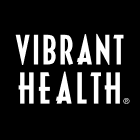
Science
Nutrition For The Different Stages Of Life
August
24,
2021
There is no doubt that we have different requirements for nutrients, vitamins, and minerals at various stages of growth and development. But there is a recipe of eating that benefits most people for life. This eating pattern should feature whole, unprocessed foods, various colorful fruits and vegetables, healthy fats, fiber, and protein. This way of eating is the most widely studied diet, the Mediterranean diet.1 However, even following this healthy way of eating may leave us deficient in some crucial vitamins and minerals due to a steep drop in nutrient density in today‚s food supply. These essential nutrients are necessary to reduce the risk of illness. 2 Plant-based products such as Green Vibrance provide plant-based micronutrients that are critical for our body‚s overall wellbeing. Micronutrients can only be obtained from food and are essential to our optimal health. It is also essential to have diversity in our diets. For example, colorful fruits and vegetables like those in Spectrum Vibrance deliver Phytochemicals that encourage antioxidant activity and protect our DNA.3 Wellness Journey When we leave home, now responsible for our own well-being, we want to show we can take care of ourselves. Most likely, there is some lack of sleep, going out with friends, the occasional overindulgence of food and drink, but all in all, we are healthy. Some may begin to experiment with cooking, go to the gym and consider supplements. The three most recommended supplements by healthcare practitioners, can help with nutrient deficiencies. Multivitamins provide a combination of vitamins, minerals, and other nutrients can help fill nutrient gaps in the diet. Probiotics,these good bacteria have been shown to positively influence the health of the GI tract, immune system, inflammatory response, and brain function. Omega-3 fatty acidsare packed with anti-inflammatory properties, Gastrointestinal tract, nervous system, immune system, and Cardiovascular support.4 Without Mom or Dad to take care of us when we are sick and not wanting to miss work, immunity also becomes at the forefront of our concerns. The fact is immunity is critical at every age. It comes down to getting enough sleep, physical activity, managing stress, and eating a healthy diet that includes foods rich in zinc, vitamin C, and quercetin.5 Plants provide a rainbow of nutrients that help the immune system run efficiently. The darker the color, the better! Simply drinking water supports our immune function by keeping things moving! Water aids in digestion and helps us flush away what we don't want hanging around. Supplements that aid in support our immune function at all ages also include Vitamin D, Zinc, Beta-glucans, Omega-3's, probiotics, and Vitamin C.6 The crucial role our microbiome plays at every age Unfortunately, most of us by the time we reach adulthood have been on antibiotics for one reason or another. May studies have been done on the adverse effect‚s antibiotics have on our gut microbiota. It is believed that it contributes to many common diseases such as diabetes, obesity, rheumatoid arthritis, depression, autism and more.7 Our gut is responsible for digesting our food to absorb the nutrients necessary to have energy both physically and mentally. In addition, it aids in eliminating toxins, fights pathogens, manages inflammation, regulates hormones, and produces healing compounds. The gut also shares a bidirectional highway from the brain to the gut and the gut to the brain. This interaction links our emotional and cognitive health with our gut health.8 The gut microbiome plays an important role in human health and influences the development of chronic diseases ranging from metabolic disease to gastrointestinal disorders.9 It also plays an important role in our ability to protect ourselves from pathogens. Being that approximately 70 percent of the body‚s total number of immune cells reside in the gut.10 Probiotics may be of benefit to maintain a healthy bacterial balance and aid in bowel regularity. The worldwide health organization defines them as ‚live microorganisms which when administered in adequate amounts confer a health benefit to the host.‚ Probiotics have been studied extensively and are well-established in the prevention or reduced duration of common viral infections, allergies, and lactose intolerance symptoms, reduced cancer-promoting enzymes, the normalization of stool passing, and a decrease in gastrointestinal effects.11 It is also vital to maintain the integrity of our Gastrointestinal lining, which, if damaged, can lead to what is known as ‚leaky gut.‚ This damage to the gastrointestinal lining leads to many health issues like chronic inflammation, autoimmune issues, food sensitivities, and more. To help repair the lining of the gastrointestinal tract, essential amino acids are necessary.Digestive Vibrancecontains L-Glutamine, which aids in preserving the gut barrier function and helps to prevent injury to the gastrointestinal lining. It also contains, Calcium butyrate and magnesium butyrate which is also needed for assisting in rebuilding the gastrointestinal tract.12 Growing into our 30‚s How you treated your body in your teens and twenties, may now be having an either positive or negative effect on your health. The amount of stress you have had, the relationships you formed, your sleep pattens and nutrient consumption. So much depends on diet and lifestyle when it comes to supplementation. If you have chosen to be vegan, you may need to supplement with vitamin B12, due to the fact that it is found in animal products. Many people in this age group are busy building a career and possibly a family. Trying to get all the appropriate dietary intake of plants, fruits and vegetables may be difficult. Supplementing with a daily multivitamin can be part of filling in the gaps. Needs will vary depending on lifestyle. It is important to pick a multivitamin that fits your gender and getting the advice of your healthcare practitioner if you have specific needs.13 Our thirties also mean you may begin to experience cartilage breakdown. This not only affects our mobility but also our skin. I believe both men and woman want to help support the strength and elasticity of their skin along with avoiding the discomfort that comes with cartilage breakdown in our joints. Cartilage cushions the ends of our bones allowing them to move smoothly.14 Behaviors like smoking, excess sun exposure, high sugar intake, and a poor diet lacking proper nutrition also play a part in cartilage breakdown.15 Collagen is the ‚glue‚ that holds our bodies together, it is the body‚s primary protein. It‚s found in the connective tissues, bones, muscles, tendons, ligaments, cartilage, skin, intestinal lining, blood vessels, dentin of teeth, and corneas.Joint vibrance provides collagen along with nutrients that may aid in stimulating cartilage growth.16 Moving into our 40‚s We are not getting any younger, so it is time to step it up on our phytonutrients! The antioxidant activity from these phytochemicals contains compounds that aid in protecting our DNA and help slow the aging process. Go ahead and have your coffee, just not too much! Have some dark chocolate and a glass of red wine! Eat a variety of color fruits and vegetable. If you struggle to get an adequate variety Spectrum vibrance delivers 40 colorful fruits and vegetables. Fiber also becomes increasingly important at this age. Fiber reduces the risk of colon cancer, aids in reducing cholesterol, regulates blood sugar, promotes detoxification, hormonal balance and manages weight.17 Men may want to begin to focus on prostate health. Limiting meat consumption, sugar and unhealthy fats.18 While woman want to prioritize their hormonal health. Eating eating foods such as flax seeds, broccoli, and whole-food soy. Limiting sugar and unhealthy fat consumption.19 Men and women both should consider whether they are getting enough magnesium. This mineral is essential to many bodily functions. Most American do not get enough Magnesium. At this age we begin to think about heart health and blood pressure regulation. Research indicates that low levels of magnesium may be associated with chronic health conditions such as cardiovascular disease and diabetes.20 50‚s and beyond - Enhanced Nutrition As we enter this age group many of us start thinking about how to age without experiencing a decline in our health. We may become more focused on our cognitive health, avoiding chronic diseases, and maintain muscle mass. Eating a healthy diet rich in diverse nutrients, which includes adding more protein, to avoid muscle loss.21 Sleep is one the most important things you can do at this age. A good night‚s sleep helps improve concentration and memory formation, allows your body to repair any cell damage that occurred during the day, and rejuvenates your immune system, to helps to prevent disease.22 It is also important to stay active, even a short walk everyday supports physical and mental function. Curcumin has been shown to aid in reducing joint pain and arthritis in order to stay active.23 It also to support brain function and may be useful in improving neurodegenerative disease.24 Once you enter this age group it is time to consider taking B12. Vitamin B12 is essential for normal blood and brain function. It is in meat and animal products. The Vitamin B12 is more poorly absorbed as the body ages, typically due to the decline in stomach acid levels.25 The need for supplementing with vitamin D increases as we get into this age group. Deficiencies in vitamin D have been linked to diabetes, heart disease, multiple sclerosis, and breast and colorectal cancers.26 Cognitive health Vitamin D status may help reduce the effects of cognitive decline. Several studies have identified a connection between low vitamin D reduced information processing, and focus.27 A daily multivitamin may improvememory, and risk of cognitive decline.28 Antioxidants obtained through colorful fruits and vegetables increase levels of vitamin E, vitamin C, lycopene and carotenoids which provide neuro protective activity.29 There are many ways to increase our lifespan. The key is to maintain your health and live life to the fullest throughout that life span. Our quality of aging is estimated to be 25% genetics and the rest non- genetics. That means there is much we can do within our control to age while maintaining a good quality of life.30
- https://www.ncbi.nlm.nih.gov/pmc/articles/PMC5625964/
- https://www.ncbi.nlm.nih.gov/pmc/articles/PMC5811844/
- https://www.mindbodygreen.com/articles/5-plant-based-foods-rich-in-nutrients-and-phytochemcials
- https://www.clinicaltherapeutics.com/article/S0149-2918(18)30089-4/fulltext
- https://www.mindbodygreen.com/articles/immune-support
- https://www.mindbodygreen.com/articles/how-to-have-strong-immune-system-thats-ready-for-anything
- https://www.ncbi.nlm.nih.gov/pmc/articles/PMC6511407/
- https://drhyman.com/blog/2020/03/20/podcast-hc2/
- https://pubmed.ncbi.nlm.nih.gov/31315227/
- https://www.ncbi.nlm.nih.gov/pmc/articles/PMC2515351/
- https://www.nature.com/articles/nrgastro.2014.66
- https://www.ncbi.nlm.nih.gov/pmc/articles/PMC4369670/
- https://www.ncbi.nlm.nih.gov/pmc/articles/PMC2905334/
- https://www.ncbi.nlm.nih.gov/pmc/articles/PMC6566836/
- https://www.ncbi.nlm.nih.gov/pmc/articles/PMC3583891/
- https://www.researchgate.net/publication/321183813_Beneficial_Effects_of_Collagen_Hydrolysate_A_Review_on_Recent_Developments
- https://my.clevelandclinic.org/health/articles/14400-improving-your-health-with-fiber
- https://www.health.harvard.edu/resources
- https://drhyman.com/downloads/Lifecyles-of-Women.pdf
- https://ods.od.nih.gov/factsheets/Magnesium-HealthProfessional/
- https://www.ncbi.nlm.nih.gov/pmc/articles/PMC4924200/
- https://www.helpguide.org/articles/sleep/how-to-sleep-well-as-you-age.htm
- https://www.ncbi.nlm.nih.gov/pmc/articles/PMC5664031/
- https://www.ncbi.nlm.nih.gov/pmc/articles/PMC2781139/
- https://www.ncbi.nlm.nih.gov/pmc/articles/PMC5664031/
- https://www.prevention.com/health/a20483697/vitamins-you-need-after-age-40/
- https://www.ncbi.nlm.nih.gov/pmc/articles/PMC4399494/
- https://pubmed.ncbi.nlm.nih.gov/25733474/
- https://www.nccih.nih.gov/health/antioxidants-in-depth
- https://www.ncbi.nlm.nih.gov/pmc/articles/PMC4822264/



